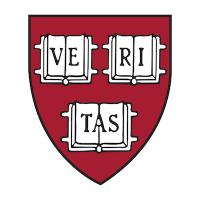What do they do?
Restore, maintain, or prepare objects in museum collections for storage, research, or exhibit. May work with specimens such as fossils, skeletal parts, or botanicals; or artifacts, textiles, or art. May identify and record objects or install and arrange them in exhibits. Includes book or document conservators.
Also known as:
Art Handler, Art Preparator, Conservation Specialist, Conservation Technician, Conservator, Exhibit Preparator, Exhibit Technician, Exhibition Designer, Exhibits Coordinator, Museum Preparator, Museum Registrar, Museum Technician, Objects Conservator, Paintings Conservator, Paper Conservator, Preparator, Restoration Technician, Textile Conservator
-
0%
Change
Ranks #56 in job growth rate50Job Openings
Ranks #16 in net job growth
Looking for colleges that offer a specific major? Use the College Match Tool to find your best-matched schools and discover your estimated Net Price!
- Master's degree (37%)
- Bachelor's degree (37%)
- Some college, no degree (9%)
- Doctorate or Professional Degree (6%)
- High school diploma equivalent (5%)
- Associate's degree (4%)
- Less than high school diploma (1%)
Most Popular Majors that prepare Museum Technicians and Conservators
-
#1
-
Degrees Granted
759
-
Female Students
647
-
Male Students
112
-
Median Starting Salary
$36,700
-
-
#2
-
Degrees Granted
536
-
Female Students
437
-
Male Students
99
-
Median Starting Salary
$47,533
-
-
#3
-
Degrees Granted
80
-
Female Students
48
-
Male Students
32
-
Median Starting Salary
$42,000
-
People in this career often have these skills:
- Active Listening - Giving full attention to what other people are saying, taking time to understand the points being made, asking questions as appropriate, and not interrupting at inappropriate times.
- Reading Comprehension - Understanding written sentences and paragraphs in work-related documents.
- Speaking - Talking to others to convey information effectively.
People in this career often know a lot about:
- Fine Arts - Knowledge of the theory and techniques required to compose, produce, and perform works of music, dance, visual arts, drama, and sculpture.
- English Language - Knowledge of the structure and content of the English language including the meaning and spelling of words, rules of composition, and grammar.
People in this career often have talent in:
- Oral Expression - The ability to communicate information and ideas in speaking so others will understand.
- Near Vision - The ability to see details at close range (within a few feet of the observer).
- Oral Comprehension - The ability to listen to and understand information and ideas presented through spoken words and sentences.
- Information Ordering - The ability to arrange things or actions in a certain order or pattern according to a specific rule or set of rules (e.g., patterns of numbers, letters, words, pictures, mathematical operations).
- Written Comprehension - The ability to read and understand information and ideas presented in writing.
- Written Expression - The ability to communicate information and ideas in writing so others will understand.
- Speech Recognition - The ability to identify and understand the speech of another person.
- Speech Clarity - The ability to speak clearly so others can understand you.
- Originality - The ability to come up with unusual or clever ideas about a given topic or situation, or to develop creative ways to solve a problem.
People in this career often do these activities:
- Construct exhibits or parts of exhibits.
- Prepare materials for preservation, storage, or display.
- Direct department activities.
- Classify materials according to standard systems.
- Evaluate characteristics of archival or historical objects.
- Inspect materials or equipment to determine need for repair or replacement.
- Maintain operational records.
- Enter information into databases or software programs.
- Record research or operational data.
- Advise educators on curricula, instructional methods, or policies.
- Develop policies or procedures for archives, museums or libraries.
- Direct activities of subordinates.
- Discuss problems or issues with supervisors.
- Research topics in area of expertise.
- Plan community programs or activities for the general public.
This page includes data from:

 Occupation statistics: USDOL U.S. Bureau of Labor Statistics Occupational Employment Statistics
Occupation statistics: USDOL U.S. Bureau of Labor Statistics Occupational Employment Statistics
 Videos: CareerOneStop, USDOL/ETA and the Minnesota Department of Employment & Economic Development
Videos: CareerOneStop, USDOL/ETA and the Minnesota Department of Employment & Economic Development





















